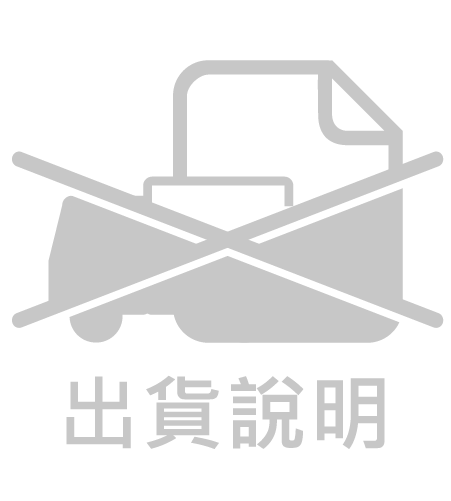 1收藏
1收藏

 1二手徵求有驚喜
1二手徵求有驚喜
定價:NT$ 861
限量商品已售完



What does it take to succeed? This question has fueled a long-running debate. Some have argued that humans are fundamentally competitive, and that pursuing self-interest is the best way to get ahead. Others claim that humans are born to cooperate and that we are most successful when we collaborate with others. In FRIEND AND FOE, researchers Galinsky and Schweitzer explain why this debate misses the mark. Rather than being hardwired to compete or cooperate, we have evolved to do both. In every relationship, from co-workers to friends to spouses to siblings we are both friends and foes. It is only by learning how to strike the right balance between these two forces that we can improve our long-term relationships and get more of what we want. Here, Galinsky and Schweitzer draw on original, cutting edge research from their own labs and from across the social sciences as well as vivid real-world examples to show how to maximize success in work and in life by deftly navigating the tension between cooperation and competition. They offer insights and advice ranging from: how to gain power and keep it, how to build trust and repair trust once it's broken, how to diffuse workplace conflict and bias, how to find the right comparisons to motivate us and make us happier, and how to succeed in negotiations - ensuring that we achieve our own goals and satisfy those of our counterparts. Along the way, they pose and offer surprising answers to a number of perplexing puzzles: when does too much talent undermine success; why can acting less competently gain you status and authority, where do many gender differences in the workplace really come from, how can you use deception to build trust, and why do you want to go last on American Idol and in many interview situations, but make the first offer when negotiating the sale of a new car. We perform at our very best when we hold cooperation and competition in the right balance. This book is a guide for navigating our social and professional worlds by learning when to cooperate as a friend and when to compete as a foe--and how to be better at both.
退換貨說明:
會員均享有10天的商品猶豫期(含例假日)。若您欲辦理退換貨,請於取得該商品10日內寄回。
辦理退換貨時,請保持商品全新狀態與完整包裝(商品本身、贈品、贈票、附件、內外包裝、保證書、隨貨文件等)一併寄回。若退回商品無法回復原狀者,可能影響退換貨權利之行使或須負擔部分費用。
訂購本商品前請務必詳閱退換貨原則。影片僅供參考,實物可能因再版或再刷而有差異
 1收藏
1收藏

 1二手徵求有驚喜
1二手徵求有驚喜
定價:NT$ 861
限量商品已售完
What does it take to succeed? This question has fueled a long-running debate. Some have argued that humans are fundamentally competitive, and that pursuing self-interest is the best way to get ahead. Others claim that humans are born to cooperate and that we are most successful when we collaborate with others. In FRIEND AND FOE, researchers Galinsky and Schweitzer explain why this debate misses the mark. Rather than being hardwired to compete or cooperate, we have evolved to do both. In every relationship, from co-workers to friends to spouses to siblings we are both friends and foes. It is only by learning how to strike the right balance between these two forces that we can improve our long-term relationships and get more of what we want. Here, Galinsky and Schweitzer draw on original, cutting edge research from their own labs and from across the social sciences as well as vivid real-world examples to show how to maximize success in work and in life by deftly navigating the tension between cooperation and competition. They offer insights and advice ranging from: how to gain power and keep it, how to build trust and repair trust once it's broken, how to diffuse workplace conflict and bias, how to find the right comparisons to motivate us and make us happier, and how to succeed in negotiations - ensuring that we achieve our own goals and satisfy those of our counterparts. Along the way, they pose and offer surprising answers to a number of perplexing puzzles: when does too much talent undermine success; why can acting less competently gain you status and authority, where do many gender differences in the workplace really come from, how can you use deception to build trust, and why do you want to go last on American Idol and in many interview situations, but make the first offer when negotiating the sale of a new car. We perform at our very best when we hold cooperation and competition in the right balance. This book is a guide for navigating our social and professional worlds by learning when to cooperate as a friend and when to compete as a foe--and how to be better at both.
退換貨說明:
會員均享有10天的商品猶豫期(含例假日)。若您欲辦理退換貨,請於取得該商品10日內寄回。
辦理退換貨時,請保持商品全新狀態與完整包裝(商品本身、贈品、贈票、附件、內外包裝、保證書、隨貨文件等)一併寄回。若退回商品無法回復原狀者,可能影響退換貨權利之行使或須負擔部分費用。
訂購本商品前請務必詳閱退換貨原則。
※ 二手徵求後,有綁定line通知的讀者,
該二手書結帳減2元。(減2元可累加)
請在手機上開啟Line應用程式,點選搜尋欄位旁的掃描圖示
即可掃描此ORcode
|
||||||||||||||||||
|
||||||||||||||||||
|
||||||||||||||||||

